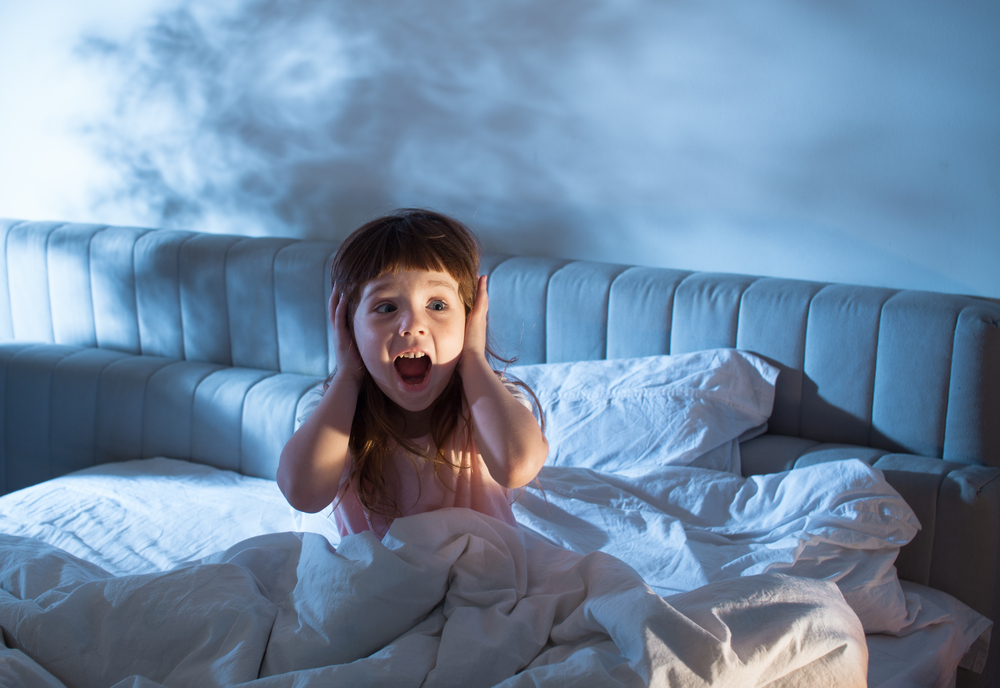
Wellbeing
Useful tools, Wellbeing
23 November, 2025

Night terrors – or sleep terrors – may not sound much worse than nightmares. They’re both characterised by feelings of fear during and after sleeping, right? Well, any parent who has comforted their child through one will tell you they are quite different.
Night terrors in children can include episodes of screaming, intense fear and flailing about, all while still asleep. They can often be paired with sleepwalking, too, and are considered a parasomnia (an undesired occurrence during sleeping). They can last anywhere from a few seconds to a few minutes, and even longer in some rare cases, before the child simply calms down and goes back to sleeping normally.
If you think your child may be experiencing them, you can look up this ‘night terrors in children symptom checker’ online. Some of the common symptoms include:
Another sign of a night terror – as opposed to a nightmare – is that your child won’t remember it the following day. This is because they are in such a deep state of sleep when these episodes happen that there is nothing to recall.
Generally, night terrors occur when the central nervous system is overstimulated during sleep. Causes of night terrors in children can range from sickness and exhaustion to stress, new medication or a new environment. Sometimes, children inherit a tendency for night terrors. A reported 80 percent of children who have night terrors have a family member who also experiences parasomnias.
Treating night terrors in children can be complicated, as there is no known cure – however, there are methods to help prevent them. These include…
If your child is experiencing a night terror, it is best not to try to wake them – both because it usually doesn’t work, and because children who do wake can become disoriented and struggle to go back to sleep.
While night terrors can be very distressing for parents, the best course of action is to simply wait them out while making sure to protect them from any potential injuries that may be caused by thrashing. Remember: night terrors aren’t usually cause for concern.
Sometimes, you may need to seek medical help for a child’s night terrors. Whether you are experiencing night terrors in young children or night terrors in older children, there are a few reasons it may be worth consulting your regular GP…
Most of the time, they won’t be cause for concern and will go away on their own.